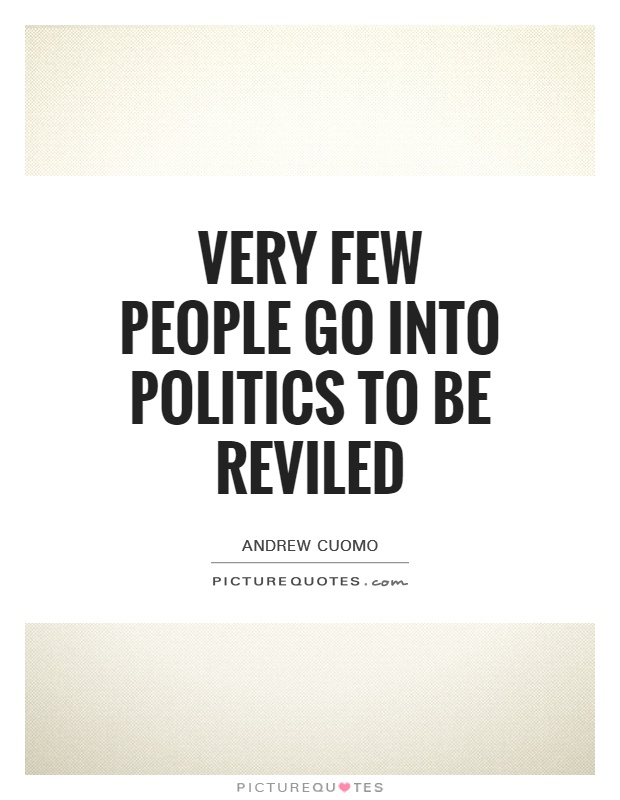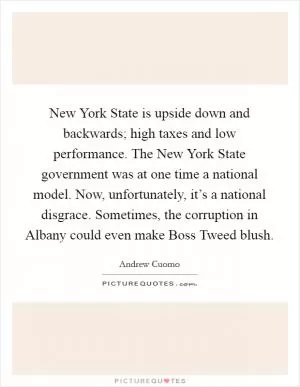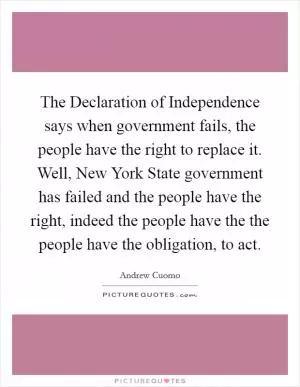Very few people go into politics to be reviled

Very few people go into politics to be reviled
Andrew Cuomo, the former Governor of New York, is a prime example of someone who likely did not enter politics with the intention of being reviled. Cuomo, a member of the Democratic Party, served as Governor from 2011 to 2021 and was once considered a rising star in the party. However, his reputation has taken a significant hit in recent years due to a series of scandals and controversies.Cuomo's downfall began in 2020 when he faced criticism for his handling of the COVID-19 pandemic in New York. While initially praised for his leadership during the early days of the pandemic, Cuomo's administration came under fire for underreporting nursing home deaths and for his aggressive response to allegations of sexual harassment. Multiple women came forward with accusations of inappropriate behavior, leading to an investigation by the New York Attorney General's office and calls for his resignation.
The allegations against Cuomo tarnished his reputation and led to a significant decline in his popularity among both Democrats and Republicans. Despite his attempts to defend himself and downplay the accusations, Cuomo ultimately resigned from office in August 2021, becoming the first Governor of New York to do so in over a century.
It is unlikely that Cuomo entered politics with the intention of being reviled. Like many politicians, he likely had a desire to serve the public and make a positive impact on his community. However, his actions and decisions as Governor ultimately led to his downfall and a tarnishing of his legacy.
The case of Andrew Cuomo serves as a cautionary tale for politicians everywhere. While many enter politics with noble intentions, the temptations of power and the pressures of the job can lead even the most well-intentioned individuals down a dark path. Very few people go into politics to be reviled, but it is a risk that all politicians must be aware of and guard against.












 Friendship Quotes
Friendship Quotes Love Quotes
Love Quotes Life Quotes
Life Quotes Funny Quotes
Funny Quotes Motivational Quotes
Motivational Quotes Inspirational Quotes
Inspirational Quotes